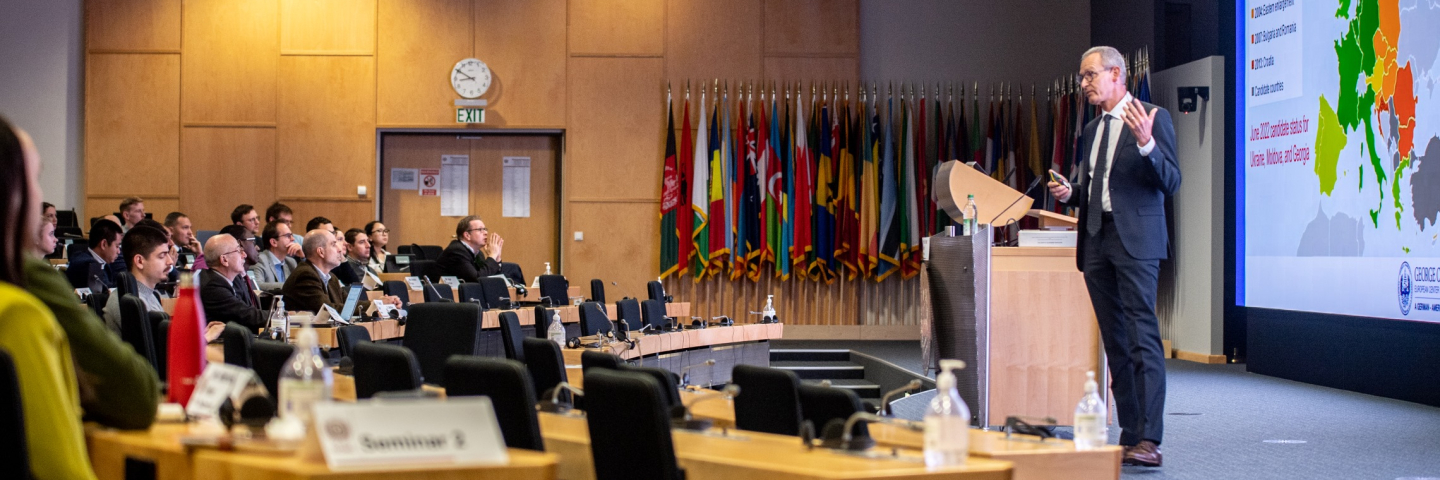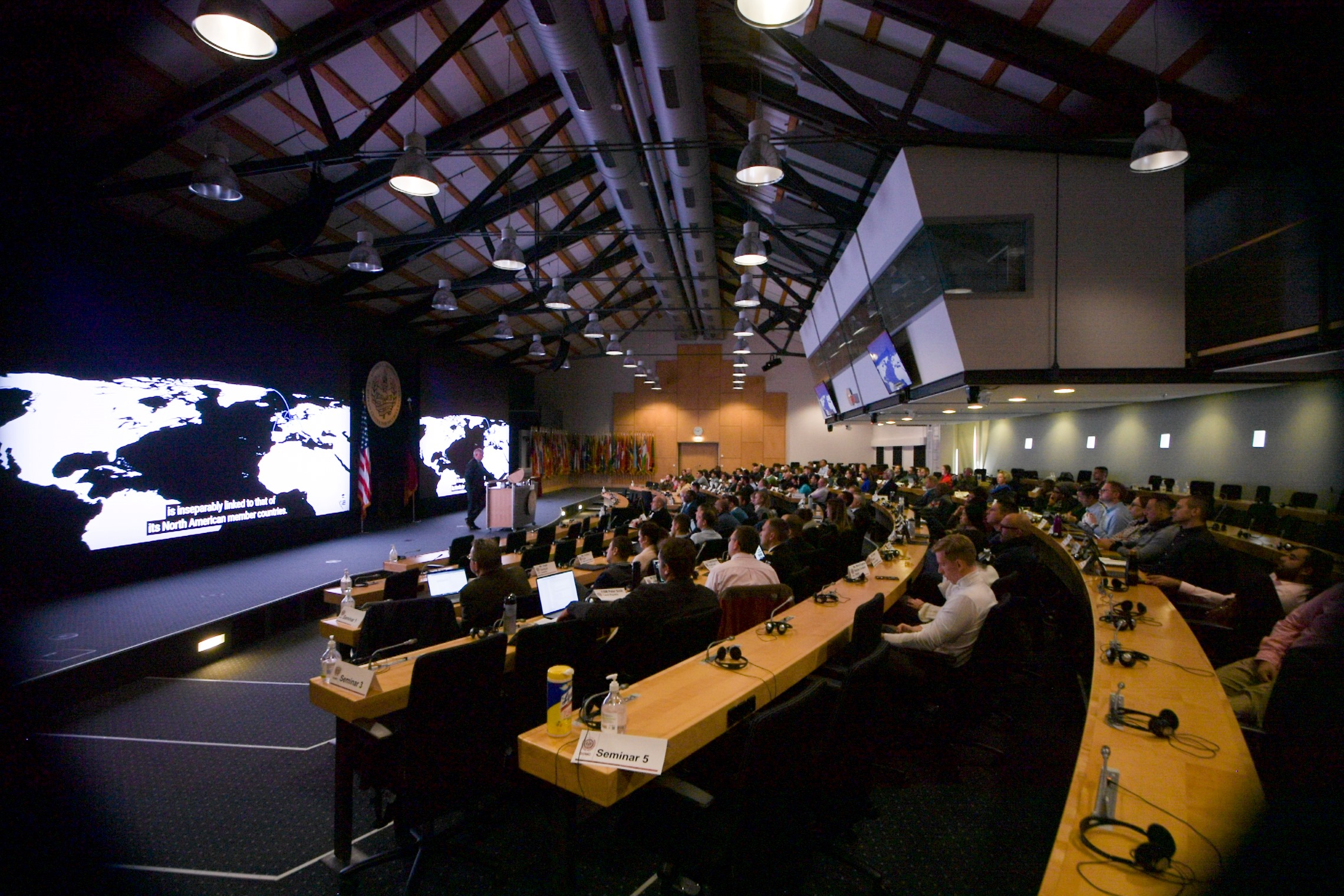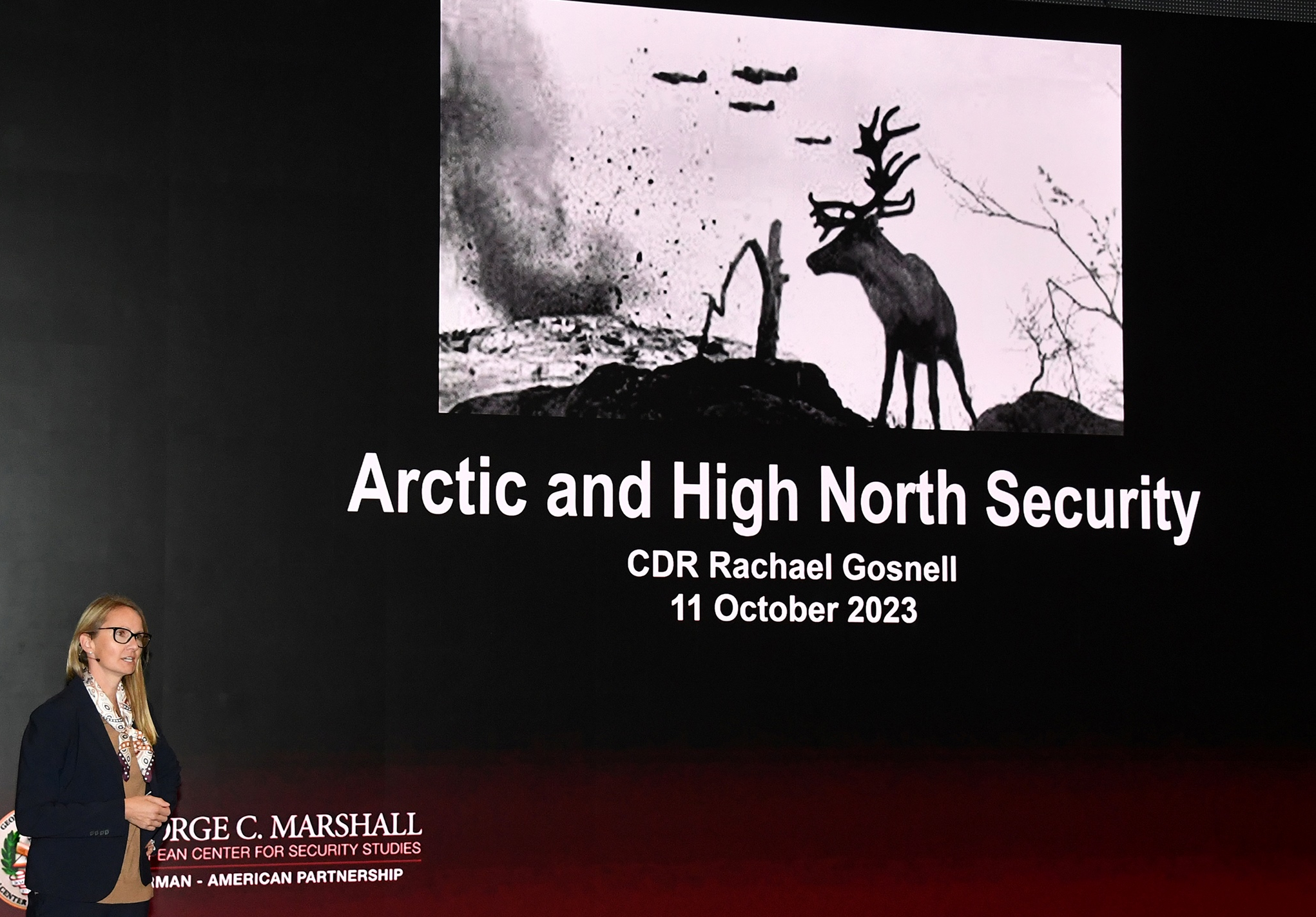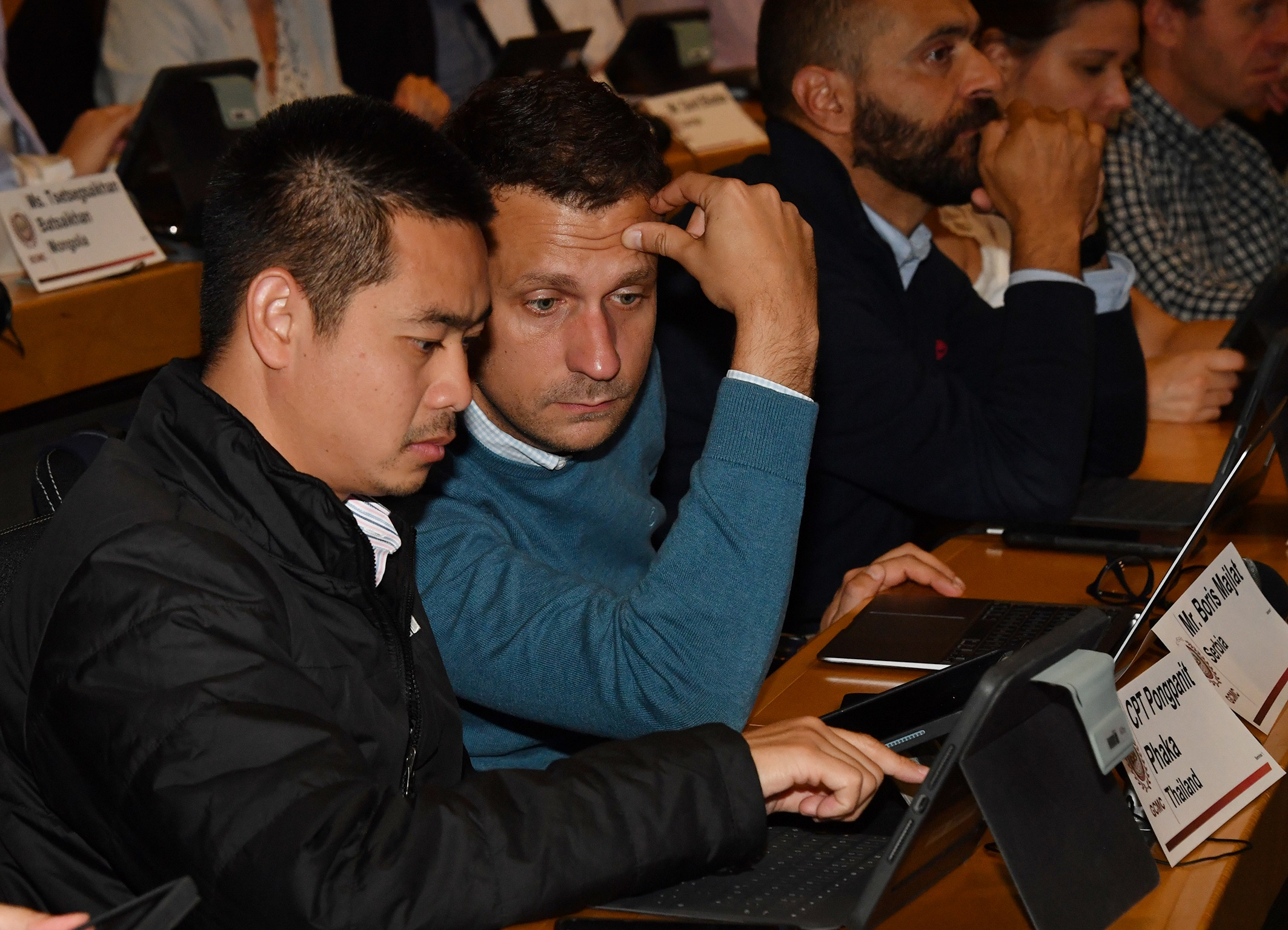
Marshall Center's Program on Applied Security Studies: Navigating Turbulent Times
Amidst a backdrop of unprecedented geopolitical shifts, the Marshall Center's Program on Applied Security Studies is at the halfway mark of its intensive nine-week course, providing participants with in-depth knowledge and insights into various aspects of current global security.
PASS 2023 consists of seven modules divided into three main phases. In the first four-week phase, participants received an in-depth look at the impacts of strategic competition, Zeitenwende and polycrisis on global, regional, and human security.
The first week started with the joint opening of PASS and the celebration of the 30th anniversary of the Marshall Center. Rachel Ellehuus, Senior Civilian Representative of the Secretary of Defense in Europe and the Defense Advisor at the U.S. Mission to NATO, introduced the current security challenges as keynote speaker.
In the following days, professors of the Marshall Center built the foundation for the next weeks: Dr. Matthew Rhodes discussed aspects of international order and strategic competition. A panel of Marshall Center professors, Drs. Ralf Roloff, Matthew Rhodes and Graeme Herd, along with Dr. May-Britt Stumbaum, an external speaker and Team Leader Asia Pacific Security, delved into the strategic competition between the U.S., Russia, China and Europe. Marshall Center adjunct professor Dr. Pal Dunay and Cmdr. Jonathan Odom, professor at the Center, introduced the principles of democratic governance and international law, while Dr. Katrin Kamin, as the second external speaker and co-director of Kiel Initiative in Geopolitics and Economics, Deputy Head Research Center Trade Policy, broadened the participants' view on globalization and geo-economics.

Dr. Heather Gregg, professor at the Marshall Center, set the tone in module two with her session, “Global Challenges and Transnational Threats,” illuminating the rise of hybrid threats. In her address, Gregg emphasized the complexities inherent in countering these multifaceted challenges.
"Countering hybrid threats necessitates building more resilient societies, governments, and alliances," Gregg said. Advocating for collaborative global efforts, she added, "Polycrisis also presents an opportunity for global cooperation, and we should harness our collective creativity to learn from each other."
Diving into the matter of climate change, Hans Peter Schmid, Director at Karlsruher Institut für Technologie, and Dr. Katrin Bastian, professor at the Marshall Center, delivered lectures. Schmid underscored the urgency, noting, "Human influence has warmed the climate at a rate that is unprecedented in at least the last 2,000 years."
Dr. Bastian, in her address, emphasized that, regardless of beliefs about human influence, "Climate change comes with surprises, and by definition surprises come with unexpected events." She also highlighted the challenge democracies face in climate-proofing their decisions.
Falk Tettweiler, from the Research and Policy Analysis Department of the Marshall Center, offered a fresh perspective on influence operations. He debunked the notion that liberal democracies are uniquely vulnerable, asserting, "Finding common ground and a common vision for the future, although having different opinions is the great advantage of liberal democracies over autocracies." Tettweiler called for renewed efforts in crafting a unifying narrative for societies.

The third module homed in on regional issues, particularly the Eastern Flank. Dr. Yevgeniya Gaber, a foreign policy expert, stressed the profound impact of the Russian invasion in Ukraine on the global order.
"We live in a fluid security environment," she said, emphasizing the need to recalibrate perspectives. Rear Adm. Piotr Niec, speaking on historical migrations in the Eastern flank, agreed. "If we do not have the cohesion of NATO, we cannot defend ourselves."
Shifting focus to the Balkans, Dr. Matthew Rhodes highlighted both opportunities and threats, cautioning that strategic choices could shape the regional order. Maj. Gen. Miha Skerbinc, Slovenia senior military representative and professor at the Marshall Center, stressed the need for the EU to take responsibility in the region, saying, "The EU should become the most attractive choice regarding financial support for them as well." Dr. Cüneyt Gürer, professor at the Center, emphasized Türkiye's significant challenges in economic management and transparency.
Addressing the critical issue of the Arctic, Marshall Center professor Cmdr. Rachael Gosnell, illuminated its role at the crossroads of climate, economic, and security trends. "The Arctic is going to drive global trends," she warned, emphasizing the worldwide ramifications of developments in this fragile region.

In the fourth module, experts delved into the inner workings of key multilateral institutions, including the UN, NATO and EU. Dr. Sebastian von Münchow acknowledged the UN's successes but highlighted operational challenges. Marshall Center Ambassador-in-Residence Eric Nelson explored the evolving landscape of diplomacy in the digital age, emphasizing its role in fostering stability.
With the first half of PASS completed, the program now moves into Phase 2 – over the next two weeks, participants will focus into issues of transnational security, regional security and instruments of statecraft in security policy topics of their choice. The second phase allows participants to delve deeply into selected topics from a total of 25 electives. Once completed, they will have spent a total of 54 hours on the deep dive. In addition, the participants will need to study numerous articles and literature related to the topic.
As the Marshall Center's Program on Applied Security Studies crosses its halfway point, it reflects the vital role of education, collaboration and adaptability in the pursuit of global security. With an eye on the horizon, PASS continues to equip emerging security professionals with the tools they need to navigate the complexities of an ever-changing world, while also building a lifelong trusted network of global partners.
As Marshall Center Director Barre Seguin said in his opening remarks, "What starts at the Marshall Center lasts a lifetime."